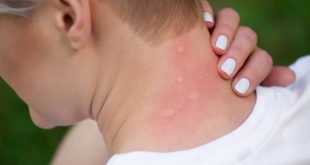 While it’s presumed many pests either die off or hibernate during the colder months, winter is still a prime time of the year for certain pests. This is especially the case during milder winters such as those we’ve generally experienced in the UK in recent years.
While it’s presumed many pests either die off or hibernate during the colder months, winter is still a prime time of the year for certain pests. This is especially the case during milder winters such as those we’ve generally experienced in the UK in recent years.
What pests cause winter problems?
Insects and spiders
They don’t like colder weather any more than we do, so will tend to find warmer environments if possible. Spiders are mostly harmless and, while many householders tend to dispose of them on sight, they can actually perform a useful pest control function by disposing of some of the insects possibly invading homes.
Insect pests tend to be mainly flies, and a few probably isn’t a cause for major concern, but if there are many then the services of a reputable pest control company should be sought. In some circumstances, cockroaches can be found, and these definitely require the professional touch to combat them as they are very resilient to basic pest control techniques.
Wasps, bees and hornets – while unlikely to be present during the winter months – may have gained residence perhaps in the loft or the cavity between a roof bargeboard and soffit. The queen may enter these areas of a property to hibernate through the winter; come the spring and milder weather a colony may form and there will be a nest to dispose of.
Prevention: generally, it’s a case of making sure entry points are as secure and damage-free as possible and any food sources aren’t left in open display. Any vulnerabilities in the roof, such as loose tiles or holes in fascias, should be attended to.
Remedy: general insect removal, such as swatting and remedies like fly papers, can remove harmless insects in low volume, but larger infestations should be dealt with by professional pest controllers – especially if wasp, bee or hornet infestation (even if only a queen hibernating) is suspected.
Mice
These common rodents can soon get out of control if they access a property. With a good enough food supply they breed prolifically producing litters around once a month, so a major infestation can develop very quickly.
They are very unhygienic; droppings from several mice poses a real problem – and they can cause damage by gnawing through woodwork and electrical wiring. They don’t require much of an invitation as they can get in through holes no larger than a five pence piece.
Prevention: many pests are attracted to food sources so don’t make it easy for them. Don’t leave food lying around – even scraps and small spillages should be removed. Keep rubbish bags secure and remove as soon as possible, and repair any vulnerabilities to the property such as gaps in wood and general holes and cavities.
Remedy: humane traps can deal with one or two mice – but when releasing them don’t do so near to the property as they’ll come straight back in again. If the numbers are greater, then poisons and lethal traps are more suitable but think carefully before taking these steps; poisons in particular require careful and expert handling so as to avoid injury and to protect the environment.
In cases where mice numbers are larger and infestation is suspected, professional pest controllers should be called in.
Rats
There are an estimated 60 million rats in the UK – around one per person which is a sobering thought. Like mice, rat numbers can escalate if conditions are suitable – and they can be a serious health hazard as they spread diseases such as salmonella and tuberculosis along with the very dangerous Weil’s disease.
Prevention: as with mice, check vulnerable gaps and opening and have them attended to, and ensure food, including feed for pets – dog food left in a bowl outside for example – isn’t easily accessible. Rubbish bags should be fully secured and disposed of as soon as possible, and repair any vulnerable areas of the property such as larger cracks, gaps and other possible entry points.
Keep outer areas tidy; rats will nest in all sorts of places, so unruly vegetation and old firewood stocks can harbour unwelcome guests.
Remedy: rats are dangerous when cornered, so it’s best to seek out the services of professional pest controllers experienced in dealing with rat disposal.
Vulnerabilities in milder winters
While milder winters may keep certain pests from seeking as much warmth as in colder conditions, on the other hand pest numbers tend to be greater. This applies particularly to rodents such as mice and rats, so check your property and the surrounds carefully for signs of infestation, and call expert pest controllers in to effectively deal with infestations and prevent them recurring.
Author Bio
Tony Bond is the Founder of North London Pest Control who have a team of pest control experts and have budget friendly solutions for pest problems.
